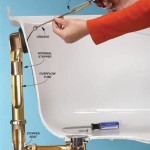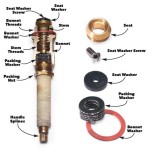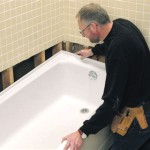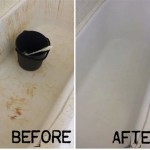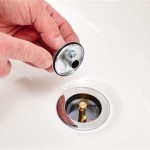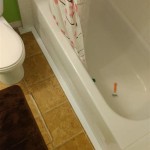Trim for Bathtub Surround: Essential Aspects
Trim, the finishing touch for your bathtub surround, plays a crucial role in both aesthetics and functionality. It conceals gaps, enhances durability, and elevates the overall appearance of your bathroom. Understanding the essential aspects of trim for bathtub surrounds is key to making informed choices that complement your bathroom's style and meet your specific needs.
Types of Trim
Various types of trim are available, each with its unique advantages and suitability for different bathtub designs. Choose from:
- Bullnose Trim: A versatile option that creates a rounded edge, softening the transition between the bathtub and surround.
- Pencil Trim: A narrow and unobtrusive trim that provides a clean, modern look.
- Quater-Round Trim: A classic choice that adds depth and elegance to the bathtub surround.
- L-Trim: Ideal for covering gaps between the surround and wall, creating a seamless appearance.
Materials
Trim for bathtub surrounds comes in a range of materials, including:
- Tile Trim: Matches the tile used for the surround, creating a cohesive look.
- Plastic Trim: An affordable and low-maintenance option available in various colors.
- Metal Trim: Durable and water-resistant, adding a touch of sophistication to the bathtub surround.
- Stone Trim: A natural and luxurious choice that enhances the aesthetic appeal of the bathroom.
Installation
Proper installation is crucial for ensuring a watertight seal and long-lasting performance. Consider the following:
- Measure and Cut: Determine the length of trim needed and cut accordingly using a miter saw for precise angles.
- Apply Adhesive: Apply a thin bead of adhesive to the back of the trim.
- Position and Secure: Position the trim over the gaps or edges and press firmly into place.
- Remove Excess Adhesive: Immediately remove any excess adhesive that may have squeezed out during installation.
Maintenance
Regular maintenance is essential to keep your bathtub surround looking its best:
- Clean Regularly: Use a mild cleaner and soft cloth to wipe down the trim and remove dirt and soap scum.
- Check for Deterioration: Inspect the trim periodically for any signs of damage or deterioration, such as cracks or loose corners.
- Repair or Replace: If the trim shows signs of wear, repair or replace it as necessary to maintain its functionality and aesthetics.
By considering these essential aspects of trim for bathtub surrounds, you can make informed decisions that enhance the style and longevity of your bathroom. Choose the right type, material, installation method, and maintenance approach to create a beautiful and functional space that you'll enjoy for years to come.

10 Bathroom Makeover Quick And Easy Bathtub Trim Hometalk

10 Bathroom Makeover Quick And Easy Bathtub Trim Hometalk

10 Bathroom Makeover Quick And Easy Bathtub Trim Hometalk

Diy Tub Skirt Decorative Panel For A Standard Soaking

How To Finish Drywall Around A Shower Enclosure

Bath Tubs Surrounds Trim Archives Royal Durham Supply

Tub Surround Trim Moulding

How To Frame Your Tub With Beadboard

Trim Kit For Showers

Pin Page
Related Posts



